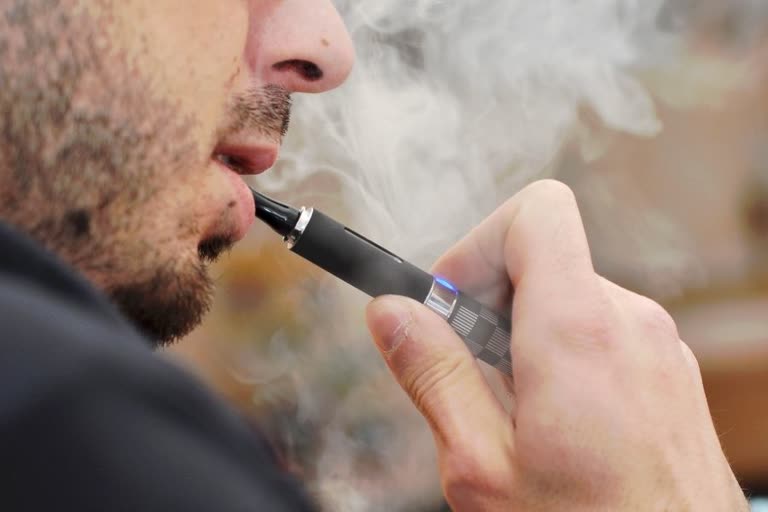The study on how vaping increases the frequency of COVID symptoms, published in the Journal of Primary Care & Community Health, found that symptoms include headaches, muscle aches and pain, chest pain, nausea and vomiting, diarrhoea, and loss of the sense of smell or taste. People who vape, also smoked tobacco and tested positive for COVID, complained of laboured breathing and had more frequent emergency department visits than those who did not vape.
"The study was designed to compare the frequency of common COVID-19 symptoms, such as loss of taste or smell, headache, muscle aches and chest tightness in COVID patients who vaped, compared with those who were not vapers," said David McFadden, from Mayo Clinic.
The team interviewed more than 280 COVID-positive vapers and compared them with 1,445 COVID-positive people of the same age and gender, and who don't vape. All of these common COVID symptoms were reported more frequently among people who vape, the researchers said.
The use of e-cigarettes has grown significantly over the past decade, especially among high school students and young adults, though the short- and long-term health effects of e-cigarettes are unknown. "There are a lot of studies that have shown that e-cigarette use may be associated with inflammation in the lungs and also may cause severe lung injury in certain users, causing a condition called e-cigarette or vaping use-associated lung injury," said Robert Vassallo, a Mayo Clinic pulmonologist and critical care specialist.
"Our research was not designed to test whether e-cigarette use increases the risk of acquiring COVID infection, but it clearly indicates that symptom burden in patients with COVID-19 who vape is greater than in those who do not vape," he added. The increased inflammation of lung tissue promoted by COVID-19 infection and the inflammation induced by vaping may worsen the likelihood of systemic inflammation, with an associated increase in symptoms such as fever, myalgias, fatigue and headache, the study noted.
"During a pandemic with a highly transmissible respiratory pathogen like SARS-CoV-2 (the virus that causes COVID-19), it is highly advisable to reduce or stop vaping and e-cigarette use, and minimize the potential for increased symptoms and lung injury," Vassallo said.
(IANS)
Also Read: Why T cell vaccines could be the key to long-term immunity?



